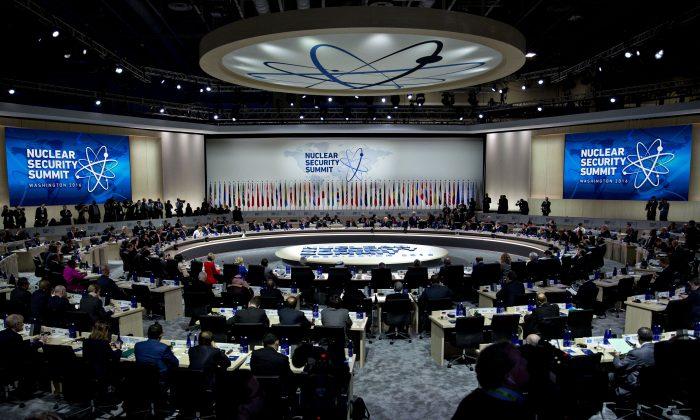The United States said it hosted a working-level experts’ meeting on nuclear weapons issues with counterparts from China, France, Russia, and the UK in “an ongoing exchange” amid Russia’s war in Ukraine.
Experts from the foreign and defense ministries of the five nuclear-armed states met on June 13 and 14 in Cairo in the context of the Nuclear Non-Proliferation Treaty (NPT), according to the U.S. State Department.
They discussed “strategic risk reduction, as well as nuclear doctrines and policy,” it stated. The U.S. delegation included experts from the State and Defense departments and the National Nuclear Security Administration.
National Security Council spokesman John Kirby described the summit as “a routine, continuing dialogue” that allowed the experts to discuss “nuclear safety protocols and procedures.”
Russia Deploys Nuclear Weapons in Belarus
The meeting came as Russian President Vladimir Putin and Belarusian President Alexander Lukashenko confirmed on June 16 the deployment of tactical nuclear weapons in Belarus.
Some of the warheads are thought to be three times more powerful than the atomic bombs that the United States dropped on Hiroshima and Nagasaki during World War II in 1945.
Putin first described plans to deploy the nuclear warheads in Belarus in March, pointing to the U.S. deployment of similar weapons at NATO bases in a number of European countries over many decades.
The move marks Moscow’s first deployment of such tactical nuclear warheads—shorter-range, less powerful nuclear weapons that could be used on the battlefield—outside Russia since the fall of the Soviet Union in the 1990s.
With Ukraine’s counterattack, Russia may lose the land it has occupied and even its homeland may be hit. Therefore, Putin needs to make such a move as a way of military blackmail to force NATO to limit military aid to Ukraine.
“This is also the first time since the end of the Cold War that a nuclear power has deployed nuclear weapons to other countries, which has seriously undermined the Non-Proliferation Treaty and may force some of the weaker countries to take an extra layer of concern when it comes to military assistance to Ukraine,” Tang said.
“But on the other hand, this move also exposed Putin’s weakness, indicating that his increasingly difficult situation on the battlefield has seriously affected the security of his power position. The expansion of nuclear weapons deployment is basically his last card, strictly speaking, he does not really want to use nuclear weapons to win the war but to use nuclear weapons to keep his position.”





